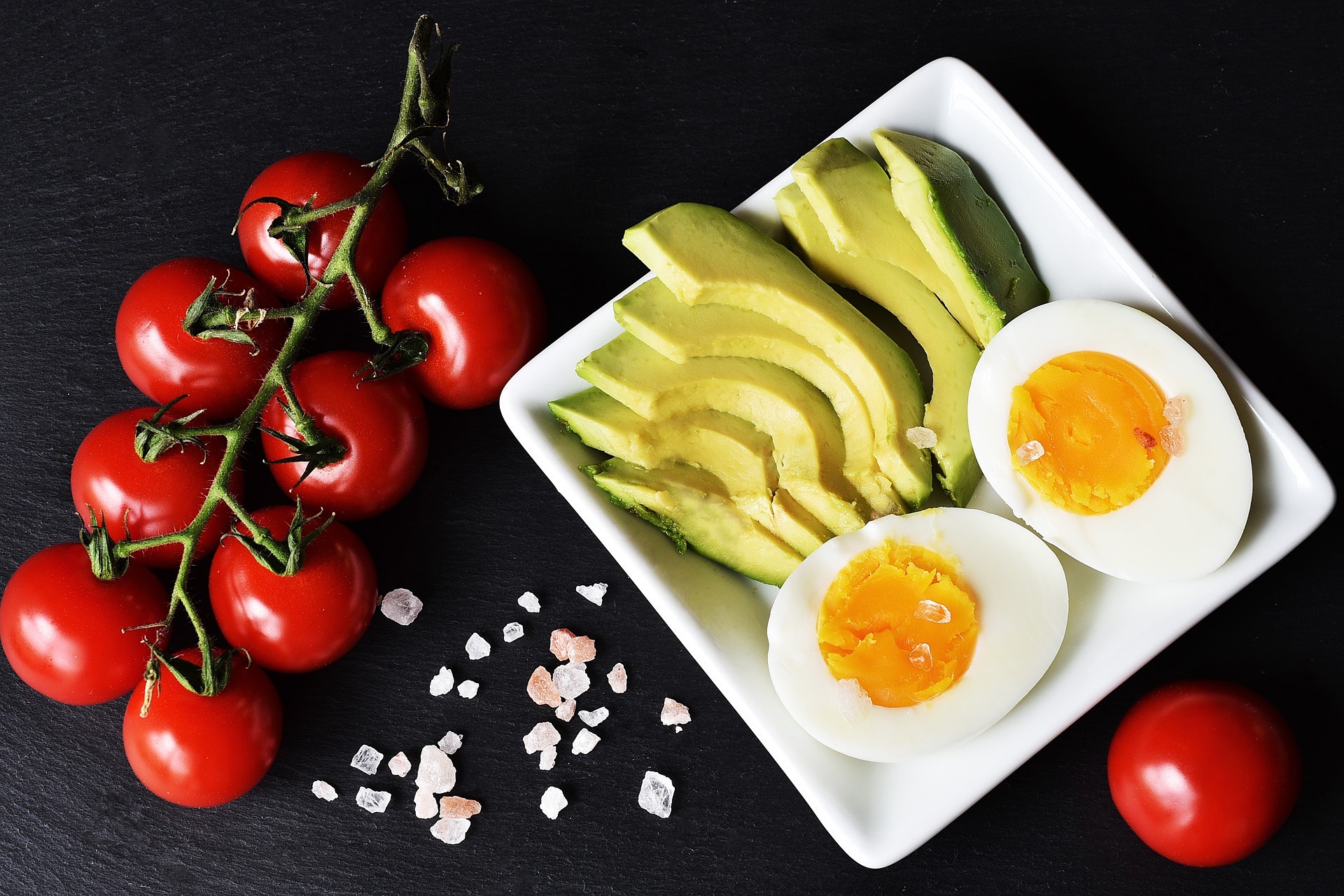3-Bullet Summary
You’ll benefit more from reading the article the whole way through. But, if you’re pressed for time, here’s a condensed version of The 5 Core Benefits of Healthy Eating for Students:
- Students are famous for eating poorly. This primarily stems from a lack of knowledge about why they should care about eating well.
- Eating healthy, however, is one of the most powerful levers a student can pull for a host of benefits. By knowing them, there comes an incentive for clean eating.
- The 5 core benefits of healthy eating for students are better grades, higher energy levels, an improved body composition, low financial costs, and a more productive, healthier future.
Cakes, Crisps and Chocolate Don’t Love You
You’re contemplating tidying up your diet.
You’ve heard that ‘healthy foods’ are good for you, and that if you start ‘eating clean’ then positive changes might happen. Perhaps you’ll lose some bodyfat, or start performing better in your daily life. You might even boost your energy levels and start smashing your studies.
But, you’re struggling to make any changes.
You don’t want to give up your favourite foods: cakes, crips, chocolate, ice cream — they all taste so good. You know that eating less of them will be a huge challenge.
So, you need convincing. You need someone to tell you why eating healthy is worth it. After all, if you start with ‘why’, then learning what to do and how to do it becomes a whole lot easier. You’ll be motivated to make change with a clear sense of purpose.
Therefore, you start your journey with one overarching question ‘what are the benefits of healthy eating for students?’
Could this be the beginning of a new you?
Introduction
Ah, the benefits of healthy eating for students, a topic that takes me back.
When I was in sixth form, frankly, I ate like shi… erm, hold on (family friendly, Sam)… I ate poorly (that’s better). This wasn’t because I didn’t have access to good food. My family have always cooked meals from scratch and regularly buy fruits, lean proteins, vegetables, etc.; I am incredibly grateful for their efforts to feed me well.
I ate poorly because I was uninformed.
See, in school, you’re never taught about the benefits of healthy eating for students (nor the benefits for humans in general), let alone how to actually eat healthy in the first place. As a result, I was never made aware of the genuinely amazing impacts a good diet can have on the many domains of life.
When I finished sixth form, however, I decided to change things.
At this point in my life, like most teenagers, I was very insecure. I really wanted to start improving my body composition to feel more attractive and confident. I had a brief understanding of the idea that eating healthy was potentially good for things like this, but no idea why.
When I was searching for answers, however, I didn’t have the article you’re reading today. Instead, I had the words of ‘bro’ (unqualified) scientists and online gurus (also unqualified, in most cases). I was misled and left quite confused, to be honest. None of them spoke to me — a young, clueless student.
That’s why, two years on and two years experienced in the science of this field, I decided to make it for you.
Believe me when I say that this article is going to cut through all the BS. Together, we’re going to learn the 5 core benefits of healthy eating for students. They’re all science-based, meaning everything you’ll learn is genuine and factual. Moreover, they’re all super relevant to you, a student. This means that by the end of this article, so long as you read it the whole way through, you’ll be convinced that a healthy diet is something that you should take seriously. Plus, if you read to the end, because I love you, I’ll even link you to the answer to the inevitable next question that’ll arise in your head: what is healthy eating?
So, let’s get down to business. Here are the 5 benefits of healthy eating for students!

Benefit 1) A Healthy Diet Improves Your Grades
Imagine two identical cars going to get fuel:
- Car 1 gets filled with the most powerful, high-octane fuel on the planet. This fuel is the industry standard, and provides the best mileage and performance.
- Car 2 gets fuelled with the cheapest fuel on the market. I mean, this fuel is like the equivalent of Iceland in the supermarket industry. It’s renowned for having awful mileage, and arguably does the car it’s filled with more harm than good.
Which car do you believe will perform better on the road?
I don’t know about you, but I suspect that it’s probably going to be Car 1.
Scratch that, Car 1 will perform better. It’s logical, really: the higher quality the input (i.e., fuel), the better quality the output will be (i.e., performance on the road).
Although you’re not a car, this principle applies to you, too. However, instead of fuel, we’re talking about food, and instead of performance on the road, we’re talking about academic performance — your studies, exam performance, ability to focus, etc.
Let me explain.
One team of researchers in 2017 produced a study about the impacts of diet on exam performance in student populations1. This study reviewed 41 other papers, generating a sample of 166,148 students. To cut a long story short, the researchers concluded that a diet rich in fruits, vegetables and micronutrients (minerals and vitamins found in healthy foods) drives better academic performance than a diet rich in junk food.
This shouldn’t come as a surprise. Our brains and bodies require essential nutrients to survive and operate effectively. In fact, some of these essential nutrients are directly associated with brain health and development, such as omega-3 fatty acids found in fatty fish like salmon2. Therefore, diets with foods containing more of these essential nutrients, particularly those with health-promoting benefits, are inevitably going to improve our cognitive performance and, thus, our academic performance.
If you want to put this to the test yourself, run an experiment. Before your next morning class, eat a standard Western breakfast. Think cereal, pastries, pancakes and fruit juice. I can guarantee you’re going to feel sleepy and sluggish despite it literally being the morning. Then, next week, before that exact same class, eat a breakfast that’s high in protein and fat, like eggs. You’ll feel much sharper, ask better questions, learn more and get more out of the lesson.
Just consider the long-term impacts of this. By eating healthy, you’re better able to focus in lesson and you’re sharper during your study sessions. As a result, you perform better in both. Over the span of months, because classes and studying are pretty much the bread and butter of success as a student, this will compound into better academic performance.
So, if you want better grades, start eating healthier!
Benefit 2) A Healthy Diet Increases Your Energy Levels
Remember the last time you ate a load of processed carbs before a class, study session or revision block? I can. I felt dreadful. Tiredness, irritability, and a desire to scroll through social media: these were the emotions I felt.
This is because what you eat impacts how you feel. (Shocker, right?)
Studies have shown that diets low in key nutrients (e.g., the essential amino acids in protein, the essential fatty acids in fat, and micronutrients) play a major role in promoting fatigue3. Again, this is because for the body to work at its optimal capacity, it requires high-quality fuel.
In addition, because the junk foods in the average person’s diet are often rich in processed carbohydrates (i.e., sugars), there’s another potential avenue for tiredness: the blood glucose rollercoaster.

See, carbohydrates are broken down by the liver into glucose (sugar), which is the body’s favourite fuel source. When you eat foods high in processed carbohydrates (e.g., sugary snacks), they can cause a rapid spike in blood sugar levels.
After this rapid rise in blood sugar, the body responds by releasing insulin. You may have heard of this hormone before; it’s often vilified. But, this vilification is wrong. (Poor insulin.)
Insulin is basically the key to your body’s cells. When the pancreas senses glucose, it releases insulin to open up the doors to your cells and shuttle glucose into them. This process helps regulate your blood sugar levels, keeping them from getting too high.
Sometimes, though, if there are lots of carbohydrates coming in and/or not enough places to store the resultant glucose (e.g., muscle), the pancreas may overcompensate and release more insulin than necessary. This rapidly brings blood glucose levels down, causing reactive hypoglycaemia4, which is nerd language for a sugar crash. And, during a sugar crash, you feel super fatigued!
What this means is that your diet can make or break your energy levels. If you eat tonnes of processed carbohydrates without any high-quality protein, fat and/or fibre to slow down digestion, you’ll always feel tired. If however, you eat more whole foods (i.e., one-ingredient foods) containing high-quality protein, fat and/or fibre, then your energy levels will be more stable.
With more stable energy levels, you’ll feel way more alert when you’re studying or revising. Is it therefore crazy to assume that a healthy diet would have an impact on your academic performance?
Let’s be real, good food promotes energy. Hence, because energy is so vital for physical and mental performance, one of the most important benefits of healthy eating for students is the energy-boosting impacts it promotes.
Benefit 3) A Healthy Diet Makes You Look Better
There’s a good chance that you’re below the age of 25. Therefore, you’re probably very concerned with your appearance. You want to portray yourself in a way that others will find appealing. And, I don’t blame you. More opportunities come for more attractive people. We’re visual creatures, so looking better taps into natural human biases.
There are many ways to improve your appearance: resistance training, high-quality sleep, managing your stress levels, getting more sunlight. However, one of the most underrated ways is through your diet. There are several reasons for this.
First, a high-quality diet, when coupled with intense, progressive resistance training, supports muscle growth.
When we resistance train, we’re essentially breaking down the proteins in our muscles5. As a result, resupplying the body with protein (and other essential nutrients) after training results in muscle protein synthesis6, which essentially means muscle growth! Because having muscle is, frankly, more attractive than not having muscle, prioritising a high-quality diet that supports muscle growth is one key avenue for developing physical attractiveness.
Second, a high-quality diet promotes fat loss.
Diets high in essential nutrients (especially protein, healthy fats, fibre and micronutrients) are satiating. This means that they keep us full. For example, contrast eating a chicken breast with a pack of sweets. The chicken breast makes you feel super full, whereas the sweets, which are low in essential nutrients, make you hungrier than you were before.
Generally, the fuller we are, the less we want to eat. If we eat less than we usually do and enter a calorie deficit, then our bodies will start tapping into bodyfat stores to keep us functioning. As our bodies chew through bodyfat, we get leaner. The leaner and more defined we get (to an extent; you don’t want to go below 10–12% bodyfat if you’re a male, or 18–20% if you’re a female, as you’ll start negatively impacting your hormones) the more attractive we look. In essence, one of the body composition-related benefits of healthy eating for students is that it keeps your bodyfat percentage in check.
Third, a good diet can improve your attractiveness by supporting good skin health. Studies have shown that foods high in antioxidants (i.e., compounds that protect your cells from oxidation and chemical alteration), such as healthy fats, fruits and vegetables, prevent skin damage and aging7. In turn, with younger-looking skin, we will inevitably look more attractive.
As someone who suffered from acne throughout their entire childhood, I can tell you from first-hand experience that a clean diet can really help to make you look and feel cleaner. When I cut out crisps about three years ago, for instance, I found that my skin instantly felt smoother. Moreover, when I cut out processed sugars, I retained less water around my face. It was like my skin became less puffy with a single dietary change.
In short, because a clean diet can promote muscle gain, fat loss and young skin, it’s should be an integral part of a student’s diet.
Benefit 4) Eating Healthy Isn’t As Expensive As You Think
One of my least favourite excuses for not eating healthy is that “It’S tOo ExPeNsIvE”. That excuse is absolute BS. I’ll show you why.
A meta-analysis (i.e., a study that looks at lots of other studies) was conducted in 20138. The researchers analysed 27 other studies to investigate the cost differences between nutritious diets and nutrient-sparse diets (i.e., those lacking in nutrients).
Guess how much, in dollars per day, it costs to eat healthier, according to the researchers. Go on; I’ll wait.
…
Ready?
$1.50 (£1.20)
This means that over the course of an entire year, to eat foods that will literally get you better grades, give you more energy, and improve your physical attractiveness, you need to spend an additional $547.50 (£436.43).
Sound like a lot? No, right?
If it does, let me phrase it this way. If you had to spend an additional $547.50 (£436.43) per year to get better grades, boost your energy levels and improve your physical attractiveness, would you do it?
I know I would.
Another key point is that not all food groups are priced equally. The researchers stated that the difference between nutritious meats and proteins (e.g., fish, steak and chicken) versus unhealthy ones (e.g., fish fingers, burgers, chicken nuggets) was by far the most significant out of all the food groups studied. Specifically, healthier options cost $0.29 more per serving than less healthy options. Healthy carbohydrates and fats, by contrast, didn’t show a significant cost difference relative to unhealthy ones.
So, clearly, there are two key takeaways:
- Because healthy carbs and fats are not more expensive than unhealthy ones, prioritise healthy ones — For carbs, load up on frozen fruits and vegetables, tinned pulses (beans, lentils, etc.), staple grains like pasta and rice, and potatoes. For fats, buy extra virgin olive oil to use for dressings and low-temperature cooking; coconut oil and/or block butter for spreading and frying; and tinned fatty fish, like pilchards and sardines, to get in your omega-3s.
- Because fresh meats are more expensive than unhealthier versions, find cheaper versions that are also healthy — Just because you may not have the resources to buy fresh salmon, steak and chicken breast doesn’t mean you can’t still buy healthy protein. Buy tinned fish instead of fresh. Go for low-fat beef mince over fresh steak. Purchase fattier cuts of chicken, like thighs and legs, as they’re way cheaper. Spam eggs and whole dairy; they’re super cheap and super nutritious!
By making some basic swaps in your weekly student shop, you’ll be able to eat healthier at pretty much no additional cost. Don’t think that eating healthy is expensive, because it’s really not — unless you’re buying caviar, freshly caught Atlantic salmon and multiple punnets of organic berries.
Simply put, the benefits of healthy eating or students are not exclusive.
Benefit 5) Eating Healthy Sets You Up for a Good Adult Life
The final benefit on this list is here to make you reflect.
As a student, you rarely think about the future. You’re young and budding with potential, taking life one step at a time. However, one day, you’re not going to be a student. You’re going to be pursuing an ambitious career, starting a healthy family and becoming an adult.
I’m approaching this point now. I’m 20 years old and in my final year of university. I don’t intend on studying anymore beyond this point. Growing my business and having an impact on the world is my next goal.
However, I realise that in order for me to be as successful as I want to be, I must have my health in order.
If I’ve got brain fog all the time from eating junk food, will I be able to write high-quality posts/scripts and tutor my students effectively? Probably not.
If I’m eating foods that make me fat, hurt my skin and mess up my self-image, will I have the courage to put myself out there into the world and make a difference? Nope.
Moreover, if I don’t learn about nutrition and my own body, will I be a good father who raises a healthy, happy child? 100% no.
This is why forging a good relationship with food at a young age is so vital.
Studies have illustrated that food preferences and dietary behaviours shaped at a young age persist into late adolescence and adulthood9. This means that if you want future you to be eating clean, feeling good and living a healthy life, starting to eat well now will plant the seeds.
By contrast, if you want future you to be depressed, overweight and look back in disappointment, potentially because of an illness like diabetes or cancer, then keep eating poorly in the here and now.
It’s a harsh truth to accept, I know. But, you must realise that you only get one body. Filling it with food that makes you look and feel terrible is disrespectful, and you will pay the price for it.
If, however, you fuel it properly, you’ll realise the power of a good diet, start experiencing the benefits of healthy eating for students, and build the foundation for a productive future.
Final Thoughts: The 5 Core Benefits of Healthy Eating For Students
Eating clean is the same as any difficult thing.
In the beginning, it sucks. You want to resort back to your M&Ms and turkey dinosaurs. But, as you learn to cook healthy foods in tasty ways, find healthy foods that you really enjoy, and start reaping the benefits of healthy eating for students, you never look back. Clean eating becomes part of your identity, and you start flourishing in your daily life.
In this guide, I’ve hopefully ignited a spark inside of you. Now that you know the 5 core benefits of healthy eating for students, you should be brimming with a motivation to start eating healthily.
I urge you to take action fast, however.
Motivation is always short lived. The faster you act on it, the sooner you’ll see progress. If you fail to act, however, you’ll stay the same and stagnate.
But, there’s probably a question in your mind: what is clean eating? I’ve spoken about it a lot in this guide, but (deliberately) haven’t given you any clear definitions or guidelines.
That’s because next week’s article (coming out on the 19th of September) is going to focus on the fundamentals of nutrition. We’re going to learn exactly what a healthy diet looks like, break down scary scientific buzzwords and destroy all the myths circulating on the internet about the topic. Set a date in your calendar, because it’s going to be a powerful article that changes your life forever!
For this article, though, you’ve received all the value it has to offer.
Just kidding! Because you’ve read this far, I’ll link you to a page where you can claim your *free* copy of The 10 Secrets of Strong Students. It’s loaded with grade-boosting, science-based tips that get massively overlooked. Download it ASAP and you’ll never look back.
Okay, now you’ve received all the value this article has to offer. If you know someone who needs to start changing their diet, hit one of the social icons below and share this article with them. You’ll blow their mind and set them on a better path.
Thank you for reading until the end. Not many people can actually read for as long as you have. Great job!
👏
Stay Strong,
Sam.







